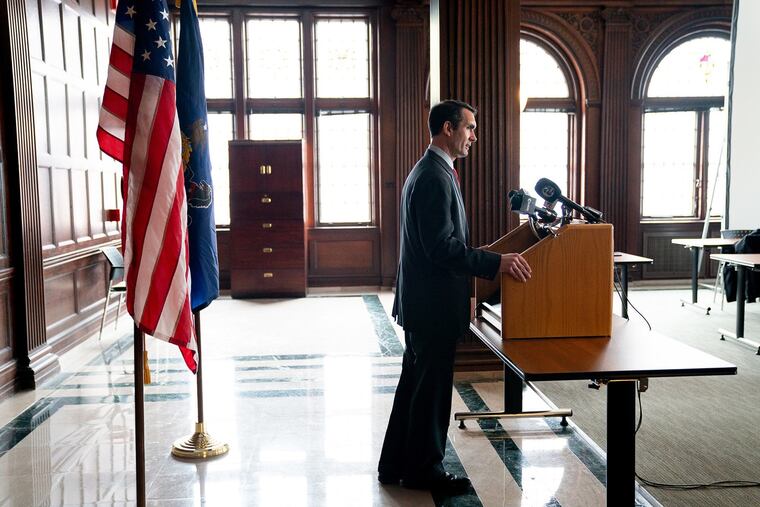Pa. must get real about the cost of cleaning up climate change disasters | Opinion
As Pennsylvania’s chief fiscal watchdog, Auditor General Eugene DePasquale has identified over $1 billion in misspent funds and continue to warn taxpayers about rising costs.

In a nation divided over the essence of truth itself, it’s often hard to have a conversation about how to solve actual problems like climate change. It’s time to focus more attention on the rising costs of climate change and less on the excuses and distractions coming from corporate interests that profit from perpetuating the problem.
As Pennsylvania’s chief fiscal watchdog, I’ve already identified over $1 billion in misspent funds and continue to warn taxpayers about rising costs. My recent special report on climate change documented at least $261 million in climate-related costs to Pennsylvania taxpayers in 2018 alone. Nearly half of that amount, $125.7 million, was in infrastructure damage statewide caused by record-breaking floods and landslides.
That cost estimate is actually fairly conservative. My team could not quantify how much damage went unreported or uncompensated, such as losses suffered by homeowners who lacked flood insurance or municipalities that did not meet federal thresholds for receiving disaster aid.
The federal government cannot and will not bail us out after every major storm. In fact, the Federal Emergency Management Agency declined to cover $63 million in damage to public infrastructure across Pennsylvania last year. Remember: Even when such costs do qualify for federal reimbursement, the money still comes from our tax dollars.
Despite mounting warnings from its own experts, the federal government is paralyzed on climate change. That means it falls to state and local governments to better plan and coordinate ways to mitigate risks to people and property. According to the National Institute of Building Sciences, every $1 spent on natural disaster mitigation saves $6 in recovery costs. So, our choice boils down to this: We can pay some now, or pay even more down the road.
We can start by improving our outdated and overburdened municipal sewer systems. Not only are those systems ill-suited to handle heavier rainfalls that cause increased flooding, some also release untreated sewage into the same rivers that supply drinking water to millions of people. Tackling this serious problem would have the added benefit of creating jobs.
We must also get real about flood insurance. Only 15 percent of Pennsylvania property owners who should purchase flood insurance actually have it and that share is decreasing. In addition, communities often underestimate their risk of flooding because the planning tools available to them do not yet account for more frequent and more severe precipitation.
Finally, Pennsylvania must join other states in reducing greenhouse gas emissions, especially carbon dioxide and methane, in the electricity, transportation, industrial, and agricultural sectors. As a state, we are the fourth-largest emitter of greenhouse gases but have few plans to help us improve that ranking. Aside from a decrease in emissions from the electric sector that resulted from moving toward natural gas and away from coal for power generation, no other real reductions have been made.
The facts are clear: Tax dollars will increasingly be spent to clean up after climate-related disasters and we have already wasted too much time. The costs of inaction are real and they are rising. If we can’t muster the will to act for our own sake, we should be ready to explain to our children why we didn’t act while there was still time.
Eugene A. DePasquale is Pennsylvania’s auditor general.